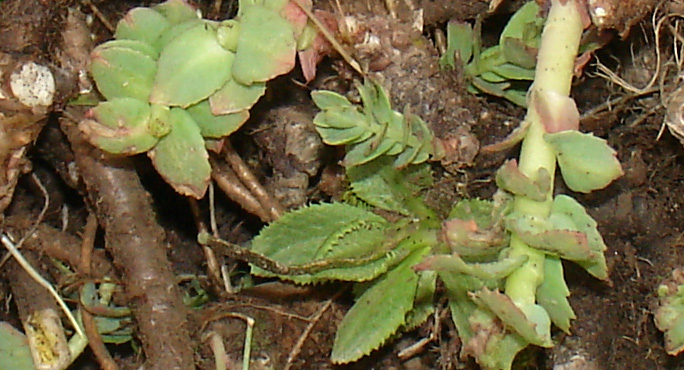Freshly harvested Rhodolia Root Northern China. Photo by Chris Kilham
Rhodiola rosea, an herb deriving from Siberia and China, has shown benefits as an antidepressant agent in a recent study. Published in the March 15 edition of the journal Phytomedicine, Rhodiola was tested among 57 subjects suffering from mild to moderate depression over 12 weeks, against the antidepressant drug sertraline. Results of the study were measured using standard scoring tests. The results showed that Rhodiola offers antidepressant benefits, though sertraline proved more effective. But the researchers who conducted the study found Rhodiola imparts fewer negative effects than sertraline, making it a safer choice.
This is not the first time that Rhodiola has been highlighted as an anti-depressant. Dr. Richard Brown and Dr. Patricia Gerbarg, both practicing psychiatrists in New York, have promoted the clinical uses of Rhodiola for many years, as has UCLA- based psychiatrist Hyla Cass. These doctors and others find Rhodiola rosea extract a viable choice in many cases for the treatment of mild to moderate depression.
The comparative study against sertraline continues to expand the body of science on Rhodiola, which proved positive as an antidepressant in a 2014 study as well. A number of additional medical publications have identified Rhodiola as an antidepressant of value.
The root of Rhodiola is used to make extracts of various types, and substances in the root known as rosavins collectively are presumed to be the primary active agents responsible for the herb’s activity. Classified as an adaptogen, Rhodiola is used to enhance energy, stamina and endurance, and thus is favored by athletes, notably those in northern Asia where Rhodiola derives.
Published clinical studies have shown that Rhodiola rosea is beneficial in cases of erectile dysfunction and amenorrhea (lack of menses), which supports the reputation of the plant for sexual and reproductive health. Rhodiola root is given as a wedding gift to newlyweds in the Altay region of Siberia, ostensibly for enhancing fertility.
There is a great deal of scientific literature on Rhodiola, though hundreds of Russian and Chinese studies remain un-translated into English, the globally-accepted science language. Because of this, the full breadth of published Rhodiola’s activities remain to be known.
Rhodiola demonstrates efficacy against stress, reducing cortisole in the blood. It allays fatigue as cited in various papers, and enhances cardiovascular health. The root is an immune-modulator, helping to raise low immune function and reduce overly high immune function. Additionally Rhodiola shows activity against certain types of cancer. Further investigation into this latter use is ongoing.
Classified as a nutritional supplement in the U.S., Rhodiola rosea does not have the substantive backing of any major pharmaceutical company, because the plant and its compounds cannot be patented. Nonetheless, a cursory review of Rhodiola-related topics on the U.S. National Library of Health database PubMed reveals hundreds of papers and articles on this fascinating plant.
One of the notable attributes of Rhodiola is that those who use the herb and its extracts typically feel the effects, usually in the form of enhanced energy, reduced fatigue, and reduced stress. The plant also enjoys popularity for notable sexual enhancement. These palpable benefits are largely pleasurable, and have done a lot to enhance visibility of the herb, which has been regarded as a health treasure since the days of the earliest emperors of China.
In additional studies on Rhodiola, the herb demonstrates significant activity for cognitive enhancement, improving mental clarity overall, enhancing thought formation and extending the amount of time a person can spend engaged in mental work.
In my own ad hoc personal bio-assays of Rhodiola, I have found the herb effective against jet lag. Currently no studies exist for this use. But as a 4 million plus mile flier, I have had ample opportunity to experiment with aids for smooth flying. Since starting on Rhodiola years ago, I can report a jet lag-free life as a heavy traveler.
Thanks to a growing body of science published globally, herbal remedies have undergone a transformation from traditional aids to scientifically-corroborated medicines. And while they remain classified as dietary supplements according to FDA, they are now increasingly embraced by the general public due to their efficacy. Herbs are regulated by FDA, a point worth noting in the face of continuing disinformation that they are not regulated. Herbs must be safe, and must comply with a multitude of guidelines to be sold in the U.S. market. Rhodiola rosea, with its long list of benefits, is one of the herbs continually making science news, in addition to providing benefits to users.


